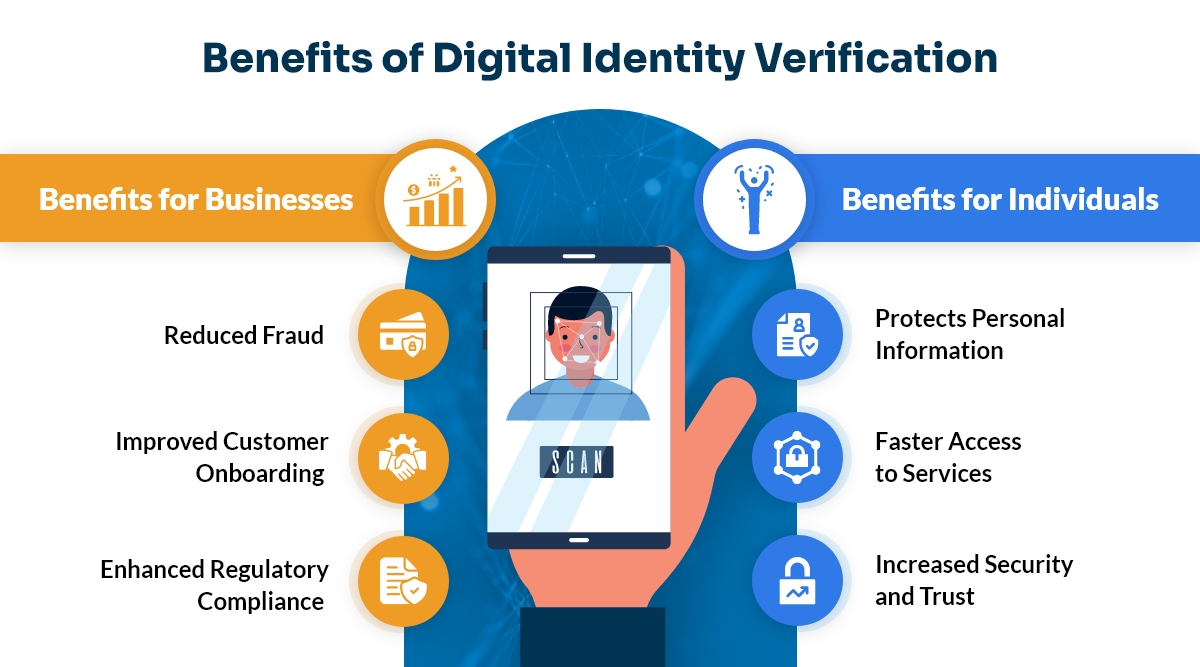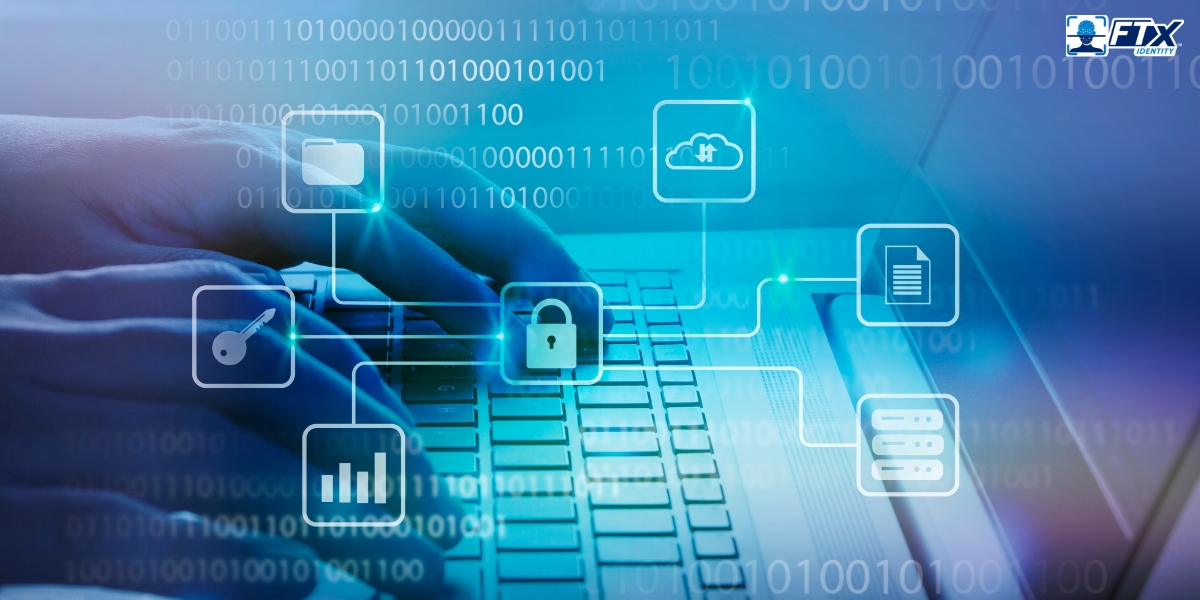The concept of identity is no longer confined to physical driver’s licenses and passports. Our identities have now moved into the digital world, playing a big role in our daily online activities and transactions.
For businesses, establishing and securing these digital identities plays a vital role in preventing fraud, optimizing operations, and upholding trust with their customers.
This post will serve as your comprehensive guide to understanding digital identity verification, its importance, how it works, and the major benefits it offers to both businesses and individuals.
What Is Digital Identity Verification?

Digital identity verification, in essence, shows that you’re really you in the online world. It’s a key part of online security, making sure the right person is accessing a service or making a transaction. This process can be as simple as confirming your email or as detailed as using biometric scans.
Verification vs. Authentication
While people often mix them up, verification and authentication have different roles.
Identity verification is the first step to checking if a user is who they say they are, while authentication is all about making sure that verification is legit before letting users access services or systems.
The Digital Identity Conundrum
Digital identity is like your digital fingerprint, it’s how you show up across online platforms. It’s a mix of your personal information, passwords, and biometric data that all come together to shape your online presence.
Why Is Digital Identity Verification Important?
With the growth of online transactions and remote interactions comes a heightened necessity for secure digital identities. Ensuring that the right person is engaging in the online activity and that sensitive personal data remains protected is at the core of digital identity verification.
The Landscape of Cybercrime
Data breaches and cybercrime are on the rise, leading to substantial losses for individuals and businesses alike. Robust digital identity verification processes are increasingly necessary to validate the integrity of online users and safeguard against malicious activities.
The Trust Economy
The digital ecosystem depends on trust. Without confidence in the security and privacy of online transactions, the digital economy cannot flourish. Secure digital identities are a linchpin in establishing and maintaining this trust.
How Does Digital (ID) Identity Verification Work?
Implementing a robust digital identity verification process involves several steps:
1. Data and document collection: Users provide various forms of identification and sometimes official documents for proof. This could involve capturing images of government-issued IDs, utility bills, and other documents.
2. Information comparison with trusted sources: The user’s provided information is cross-checked with data held by authoritative sources, such as government databases or credit bureaus, to confirm its validity.
3. Biometric verification: Advancements in technology have made biometric verification more accessible. This includes verifying the uniqueness of attributes such as fingerprints, voice recognition, and facial features.
Benefits of Digital Identity Verification

The adoption of robust digital identity verification solutions yields many benefits for businesses and individuals at the other end of the transaction.
Benefits for Businesses
Reduced Fraud
Advanced verification systems significantly reduce the risks associated with identity theft and other forms of online fraud. By adding layers of security, businesses can authenticate the true account holder more effectively.
Improved Customer Onboarding
Implementing efficient verification processes speeds up customer onboarding, reduces drop-offs, and offers a seamless entry into your service ecosystem.
Enhanced Regulatory Compliance
In today’s tightly regulated business environment, compliance with stringent anti-money laundering (AML) and know your customer (KYC) regulations is non-negotiable. Digital identity verification technology helps businesses meet these benchmarks with ease.
Benefits for Individuals
Protects Personal Information
Effective digital identity verification safeguards your personal information, ensuring it isn’t misused or accessed by unauthorized parties.
Faster Access to Services
Digital services that require identity verification can be accessed more quickly, without the traditional delays associated with manual document handling and identity verification.
Increased Security and Trust
For individuals, a secure digital identity verification process means less worry about online identity theft and more confidence in the online services they use.
Wrapping Up
Digital identity verification is an indispensable tool for modern businesses and individuals navigating the complexities of the digital space. It’s crucial for protecting against online threats and fostering trust and security in the digital economy.
For businesses looking to stay ahead, the integration of digital identity verification systems is an investment in their future. By understanding the value it brings to both customer experience and organizational security, businesses can adapt and thrive in a landscape that demands nothing less than the highest standard of online protection and verification.
To learn more about FTx Identity, be sure to reach out to us to schedule a consultation and experience a demo!
